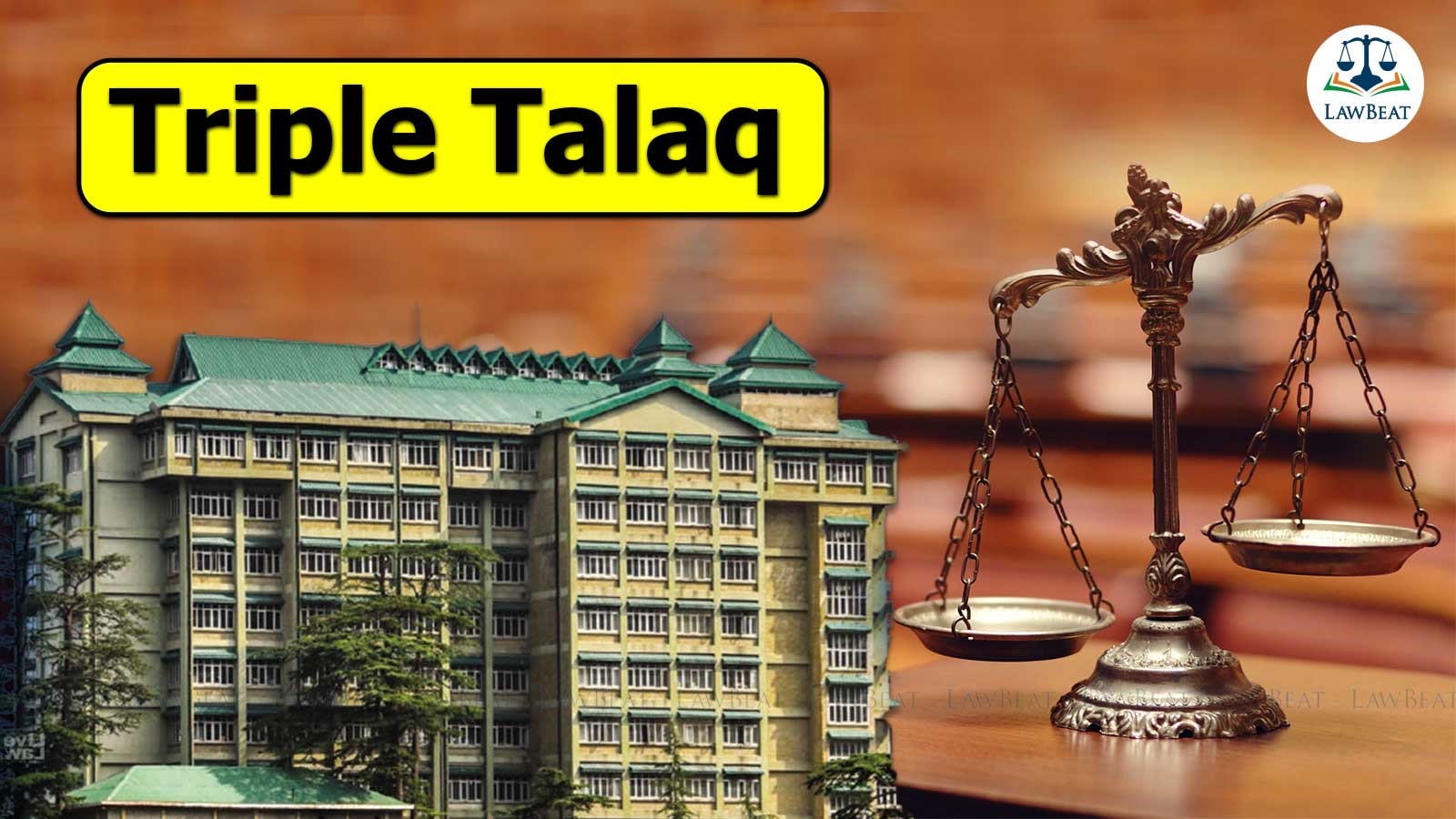Only Instantaneous & Irrevocable Forms of Talaq Punishable Under Muslim Law: Himachal Pradesh HC Clarifies

The court cited judgments from the apex court and other HC’s and held that while Talaq-e-Biddat is unconstitutional and illegal, other forms of talaq remain valid under Muslim personal law
The Himachal Pradesh High Court has clarified that the Muslim Women (Protection of Rights on Marriage) Act, 2019 criminalises Talaq-e-Biddat, popularly known as triple talaq, or similar forms of talaq that have the effect of instantaneous and irrevocable divorce, and not other forms recognised under the Muslim Personal Law.
Justice Rakesh Kainthla, presiding over the court, noted that Muslim law recognizes multiple modes of talaq, including Talaq-e-Ahasan and Talaq-e-Hasan, which differ from Talaq-e-Biddat and thus, not criminalised. Talaq-e-Ahsan involves a single pronouncement of divorce made during a period of purity (tuhr) and can be revoked during the Iddat period, while Talaq-e-Hasan involves three pronouncements made over successive periods of tuhr. Both forms allow for reconciliation and are not deemed irrevocable immediately.
The court observed : “The pronouncement of talaq-e-sunnat either by Ahsan form or Hasan form has not been made penal in the Muslim Women (Protection of Rights on Marriage) Act, 2019. Talaq-e-hasan or talaq-e-ahsan are legal and valid under the Muslim Personal Law.”
The High Court’s observation came while hearing a petition seeking to quash an FIR registered against a Muslim man under Section 4 of the Act. The man (petitioner) had sent a written divorce notice to his wife on April 25, 2022, which was claimed to be in violation of the Act. The petitioner argued that his notice did not constitute Talaq-e-Biddat but rather a different form of talaq that is not penalized under the Act.
The court ruled that the petitioner’s written notice did not fall within the definition of Talaq-e-Biddat as outlined in Section 2(c) of the Act, which specifies that only forms of talaq that result in instantaneous and irrevocable divorce are punishable. The court found that the notice sent by the petitioner did not constitute an instant or irrevocable divorce.
Citing previous judgments, including the Kerala High Court's decision in ‘Saheer v. State of Kerala’ (2023) and the Supreme Court's ruling in ‘Shayara Bano v. Union of India’ (2017), which have established that only Talaq-e-Biddat is unconstitutional and illegal, while other forms of talaq remain valid under Muslim personal law.
“The Mohamedan law does not provide a single mode of Talaq but multiple modes and out of these modes, the legislature has only prohibited Talaq-e-Biddat or any other similar form of Talaq having the effect of instantaneous and irrevocable divorce pronounced by a Muslim husband,” the court held. Ultimately, the court concluded that the FIR did not disclose any offence under the Act as the notice in question was not Talaq-e-Biddat.
The court, however, noted that while exercising extraordinary jurisdiction under Section 482 of the Code of Criminal Procedure (Cr.P.C.), under which the application for quashing of a case was filed, it is not permitted to conduct a mini-trial or engage in a detailed evaluation of the evidence in a specific case. The court rejected the plea, stating that the chargesheet had already been filed and the competent court was seized of the matter. It further noted “This Court cannot say anything about the truthfulness of the statement and it is a matter of trial to be determined by the learned Trial Court.”
Therefore, the petition to quash the FIR was dismissed.
Cause Title : X v State of HP and Anr. [Cr.MMO No. 1162 of 2022]
